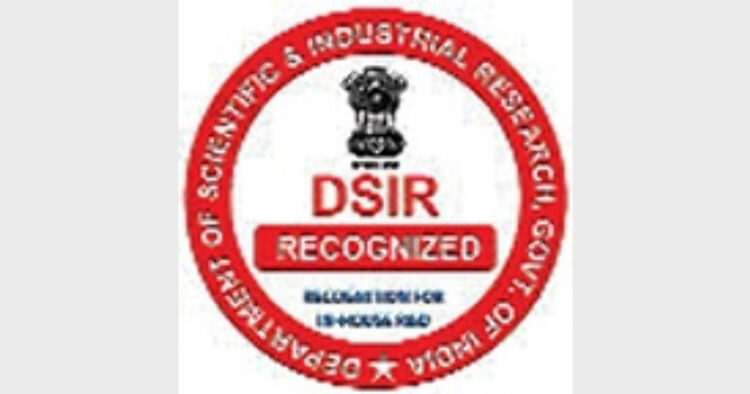Reintroduction of exemptions on investments made with academic and R&D Labs can create a conducive ecosystem to boost indigenous research
Scientific & Industrial Research companies bring disruptive technologies to the market, which are then licensed to manufacturers — for instance drug molecule, processor designs, engine designs, better-yield seeds for agriculture, switches etc. These companies are non-service and non-manufacturing and help give impetus to manufacturing and services. Bharat, generally, has very few companies selling technology research.
Building a sustainable technology research company is one of the most difficult businesses in the world. The chances of failure are high; the first field trials of product can fail and iterative incorporation of improvement till it succeeds can be time and fund consuming. And by the time the company gets it right, the opportunity may have vanished. This is the reason why Bharat doesn’t produce many Scientific & Industrial Research companies and we are dependent on imports for the same.
Bharat, remains a market and cheap labour destination in the absence of our own industrial research capability. None of our chronic problems will be solved by outsiders, more so for our strategic sector. We assume that ‘job creation; cost-effective price in our own country for the same class of products, reduction of imports, enabling higher education and building our nation’s capability’ is understood and needs no elaboration.
These companies have no political clout and no lobbying capability, which calls for deep pockets. Yet, these are the entities that will improve the quality of our citizens by offering technology solutions to problems that we encounter and also by paying taxes that they will generate when they become sustainable.
What would also help a lot is lower interaction by regulatory bodies such as sales tax and the Income Tax department with such companies. Those who start such entities are domain experts, usually PhDs from top global universities with field experience but who have a poor sense of business as well as poor ability in dealing with state regulatory bodies and its front-end officials. The interaction and compliance to regulatory bodies takes away their focus from core work.
Bharat did offer an attractive incentive under Section 80-IB (8A) of the Income Tax Act till the year 2007, but this scheme was withdrawn, though some companies
will continue to avail the benefits till 2017.
It is the Department of Scientific & Industrial Research (DSIR), Government of Bharat that qualifies and certifies a company to be a pure research based company i.e. companies only selling research output.
DSIR certified companies are today given exemption from Central Excise as per Government of Bharat, Department of Revenue—Customs and Excise Notification No. 13/99—Central Excise dated 28th February 1999 as amended by Notfn No.22/99. Since Excise as well as VAT will be part of GST, waiver of GST for 80-IB (8A) DSIR, recognised companies is suggested. This should be extended to buying from or selling to DSIR 80-IB (8A) companies.
NITI Aayog & industry bodies like CII also believe that there is merit in the recommendations i.e.
- Reintroduction of Section 80-IB (8A) of the I-T Act with MAT exemption as articulated by the DSIR in its November 2014 recommendation to Finance Ministry.
- Goods and Services Tax (GST) waiver for companies who are qualified 80-IB (8A) of DSIR. This should be for both buying from as well as selling to such companies.
- Patent filing both in Bharat and outside for 80-IB (8A) DSIR recognised companies is 100 per cent paid by the Government. Patent within Bharat is granted within a timeframe and on priority for DSIR recognised companies.
- Refund on research investment made by a recognised 80-IB (8A) DSIR Company with top Government academic institute like IITs, IISc, NIT and R&D Labs like CEERI, NAL, DRDO of the country. DSIR can be the nodal agency on implementing the same with budget allocation from the Finance Ministry.
The four policy impetus will enable the indigenous scientific and industrial research ecosystem in the country. The coming budget should implement it.
Reapan Tikoo (The writer is Chief Executive, Powai Labs)














Comments